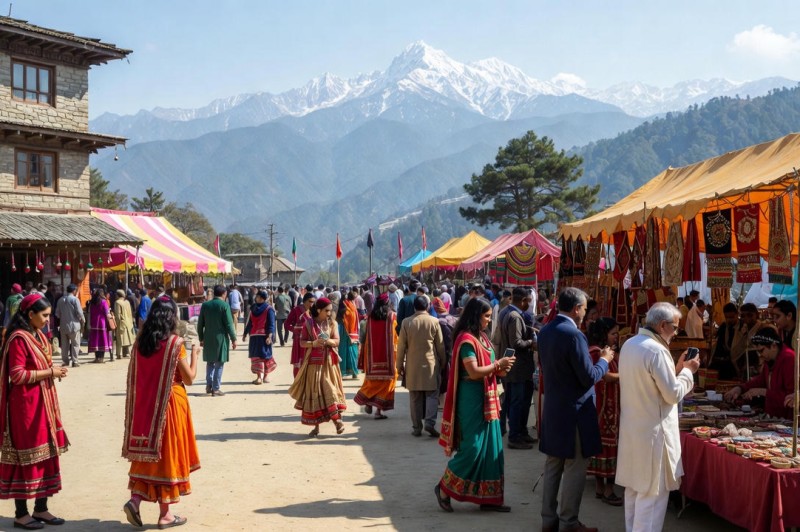

Na mantraṁ nō yantraṁ tadapi ca na jāṇē stutimō
na cāhvānaṁ dhyānaṁ tadapi ca na jānē stutikathā: .
Na jānē mudrāstē tadapi ca na jānē vilpanaṁ
para jānē mātastvadanusaraṇa klēśaharaṇam..1.
Meaning – O Mother! I don't know anything about your mantra, instrument, praise, invocation, meditation, praise story, posture or lamentation, but I only know to follow you who removes all kinds of troubles.
Vidhērajñānēna draviṇavirahaṇālasatayā
vidhēśaktvāttava caraṇōryā cyutirabhūt.
Tadētakṣantavyaṁ janani sakalōd'dhāriṇī śivē
kuputrō jāyēta kvacidpi kumātā na bhavati..2..
Meaning: O compassionate mother who saves everyone! Forgive me for the mistake I have made in serving your feet due to not knowing the method of worshiping you, due to lack of money, laziness and not being able to perform those methods properly, because the son becomes kaput but Mother is not a kumata.
Pr̥thivyāṁ putrāstē janani bahava: Santi saralā:
Paraṁ tēṣāṁ madhyē viralataralōsahaṁ tava suta: .
Madīyōsyaṁ tyāga: Samucitamidaṁ nō tava śivē
kuputrō jāyēta kvacidpi kumātā na bhavati..3..
Meaning: Mother! There are many of your simple sons in the world, but among them I am a rare and very fickle one, yet O Shiva! It is not right for you to abandon me, because the son becomes childless but the mother does not become a virgin.
Jaganmātarmātastava caraṇasēvā na citā
na vā dattaṁ dēvi draviṇamapi bhūyastava māyā.
Tathāpi svēhaṁ mayi nirupamaṁ yatprakuruṣē
kuputrō jāyēta kvacidapi kumātā na bhavati..4..
Meaning: Oh Jagadamba! Hey mother! Even if I have not served your feet or surrendered abundant wealth for you, if you have such a unique love for me then it is true because the son becomes a worthless but the mother does not become a nugatory.
Parityaktā dēvā vividha sēvākulatā
māyā pan̄cāśīradhikamapanītē tu vayasi.
Idānīṁ cēnmātastava jara kr̥pā nāpi bhavitā
nirālambō lambōdarajanani kaṁ yāmi śaraṇam..5.
Meaning: Oh Mother Ganesh! Having passed the age of more than eighty-five years, I have become afraid of worshiping in various ways and have left all the gods. If I do not have your grace at this time, then in whose refuge should I go, being helpless?
Aśvapākō jalpākō bhavati madhupākōpamagirā
nirātaṅkō raṅkō viharati ciraṁ kōṭikanakai:.
Tavāparṇē karṇē viśati manuvarṇē phalamidaṁ
jana: Kō jānītē jani japanīyaṁ japavidhau..6.
Meaning: Oh Mother Apare! If as soon as your mantras fall into his ears, even a Chandaal becomes a great orator with a sweet voice and even a very poor man becomes a millionaire and roams around fearlessly for a long time, then who knows the result of chanting the ritual of its chanting? could?
Citābhasmālēpō garalamaśanaṁ dikpaṭadharō
jaṭādhārī kaṇṭhē bhujagapatihārī paśupati:.
Kapālī bhūtēśō bhajati jagadīśaikapadavī
bhavānī tvatpāṇigrahaṇaparipāṭīphalamidam..7.
Meaning: The one who consumes the ashes of the funeral pyre, consumes poison, remains naked, is tied with a hair tie, wears a snake garland around his neck, holds a pebble in his hand, is the master of Pashupati and the master of ghosts, such is Lord Shiva who has received the title of the only Jagdishwar. O Bhavani! This is the result of getting married to you.
Na mōkṣasyākāṛakṣā bhavavibhavavāṇchāpi ca na mē
na vijñāna śaśimukhi sukhēcchāpi na puna: .
Atatvaṁ sanyācē jani janana yātu mama vai
mr̥ḍānī rudrāṇī śiva śiva bhavānīti japata:..8..
Meaning: Oh Chandramukhi Mata! I have no desire for salvation, no desire for worldly glory, no desire for science and happiness, therefore I only ask you to spend my entire life chanting the names of Mridani, Rudrani, Shiv-Shiv, Bhavani etc. Byte.
nārādhitāsi vidhinā vividhōpacārai:
Kiṁ rukṣacintanaparaiṇa kr̥taṁ vacōbhi:.
Śyāmē tvamēva ipha kin̄cana mayanāthē
dhatsē kr̥pāmucitamamba paraṁ tavaiva..9..
Meaning: Hey Shyam! I did not serve you with many remedies or (not only this, on the contrary) what did I not do with my words that were intent on negative thoughts? (That is, I have done many evils) Still, if you show some kindness to me, an orphan, then it is very appropriate for you, because you are my mother.
Āpatsumagna: Smaraṇatvadīyaṁ
karōmi durgē karuṇāravēśi.
Naitacchaṭhatvaṁ mama bhāvayēthā:
Kṣudhātr̥ṣārta jananīṁ smaranti..10..
Meaning – O Durga! Oh Dayasagar Maheshwari! Whenever I fall into any trouble, I remember you only, don't consider it my wickedness, because hungry and thirsty children remember their mother.
Jagadamba vicitramatra kiṅkā paripūrṇa karuṇāsti cēnmayi.
Aparādhaparamparāvr̥taṁ na hi mātā supēkṣatē sutam..11.
Meaning: O Jagajjanani! You have full blessings on me, what is surprising in this? Because a mother does not abandon even a son who has committed many crimes.
Matsama: Pātakī nāsti pāpaghnī tvatmā na hi.
Tathā tathā jñātvā mahādēvi yathārthaṁ kuru..12.
Meaning: O Mahadevi! There is no sinner like me and there is no one who can destroy sins like you, knowing this, do whatever you think is right.
|| Iti śrīmacchaṅkarācāryakr̥taṁ dēvyaparādhakṣamāpanastōtram ||
Devi Apradh Kshamapan Stotra is one of the best and melodious hymns composed by Adi Guru Shankaracharya. The "Devi Apradh Kshamapan Stotra" is a revered Hindu hymn or prayer that is recited to seek forgiveness and blessings from the Goddess, especially Goddess Durga. The term "Apradh" refers to transgressions or wrongdoings, and the stotra is recited to ask for forgiveness for any errors or sins committed during worship or daily life.
Reciting the Devi Apradh Kshamapan Stotra is a way for devotees to seek the goddess's pardon and to cleanse their souls. It is believed that the goddess, in her infinite compassion, forgives the mistakes and shortcomings of her devotees.
The stotra is typically recited during puja (worship) and can be a significant part of a devotee's spiritual practice. It serves as a means to express devotion, seek forgiveness, and receive the blessings and grace of the goddess.
The stotra is usually recited in Sanskrit or Hindi, and it is advisable to understand its meaning to fully appreciate its significance. Reciting it with sincerity and devotion is believed to bring about spiritual purification and divine blessings